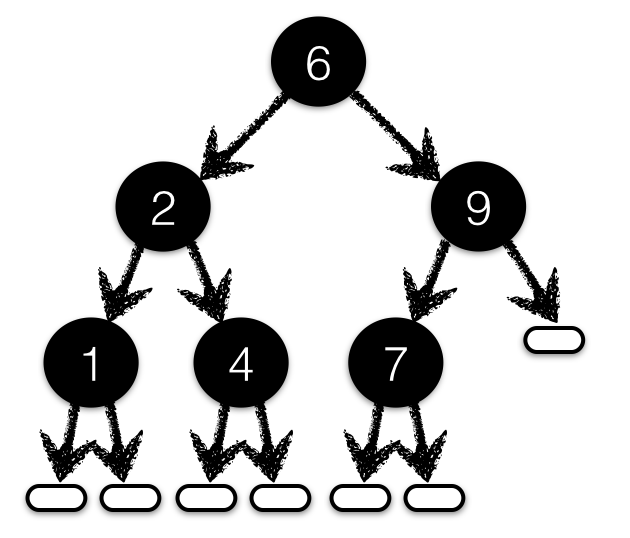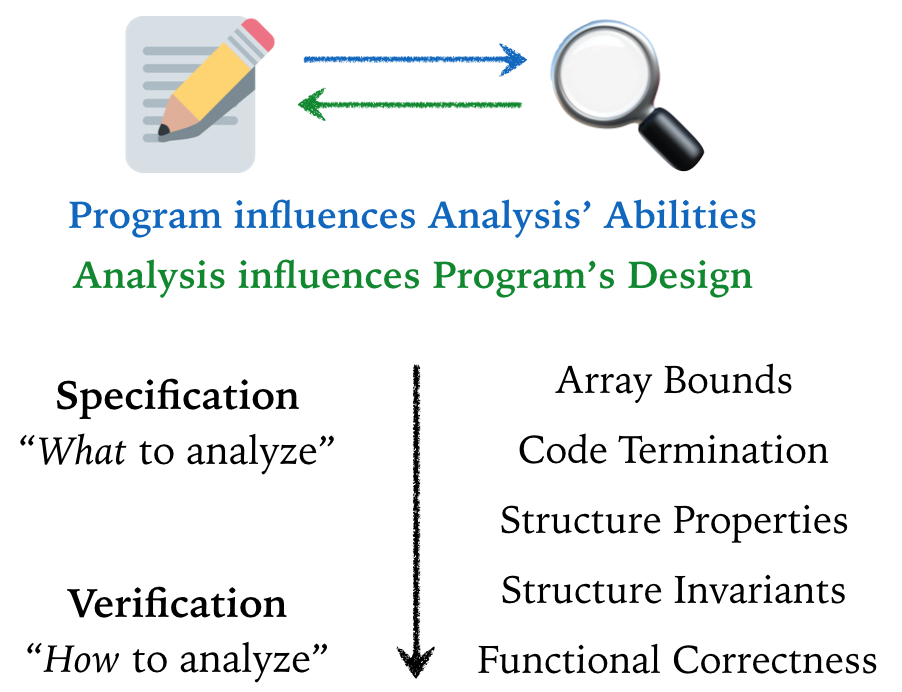Binary Search Trees

At each node with value key
Left subtree nodes are less than key
Right subtree nodes are greater than key
Binary Search Trees
Legal Binary Search Trees
Exercise: Refine the type to only allow legal BST (e.g. reject bad)
Lookup a Value in a BST
Classic Recursive Traversal
Update a Value in a BST
Classic Recursive Traversal
Exercise: Oops. Not so classic. What's up?
What Theorems Shall we Prove?
Looks like the type checker automatically verifies legal invariant!
Functional Correctness: McCarthy's Dictionary Laws
set updates the value of the same key
\[\forall m, k, v. \mathrm{get}\ (\mathrm{set}\ m\ k\ v) = v\]
set preserves values of other keys
\[\forall m, k_1, k_2, v. k_1 \not = k_2 \Rightarrow \mathrm{get}\ (\mathrm{set}\ m\ k_2\ v)\ k_1 = \mathrm{get}\ m\ k_1\]
Specifying the Laws as Types
set updates the value of the same key
m:_ -> k:_ -> v:_ -> {get (set m k v) k = Just val}
set preserves values of other keys
m:_ -> k1:_ -> k2:{k2 /= k1} -> v:_ -> {get (set m k2 v) k1 = get m k1}
Verifying the Laws as Types
Exercise: Shall we try to fill the proof in?
Verifying the Laws as Types
Proof of the second law is similar
Split cases and recursion (aka induction)...
Verification with Refinement Types
Part I: Refinements 101
Case Study: Vector Bounds
Part II: Properties of Structures
Case Study: Sorting, Interpreter

Part III: Invariants of Data Structures
Case Study: Sorting actually Sorts Lists
Part IV: Termination and Correctness Proofs
Case Study: Optimizing Expressions, Search Trees
Language Integrated Verification
